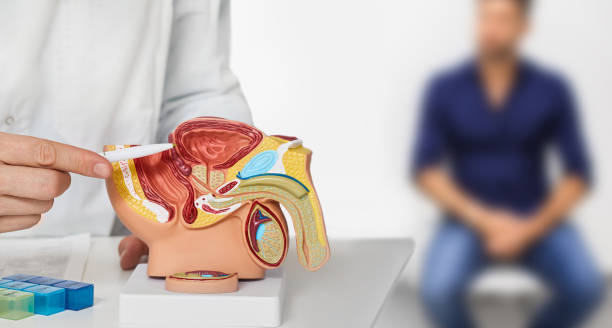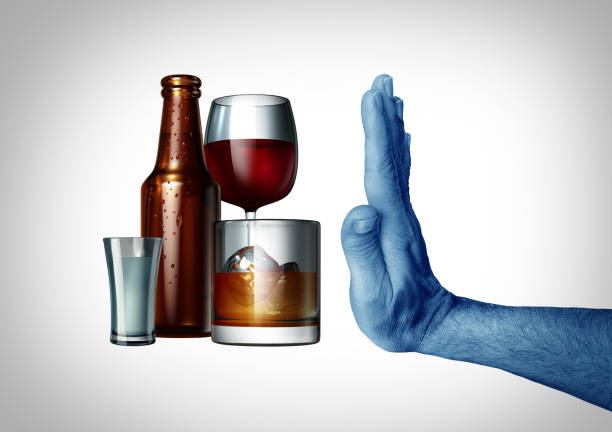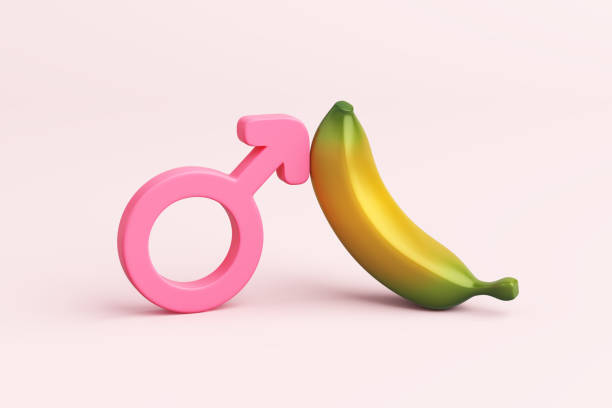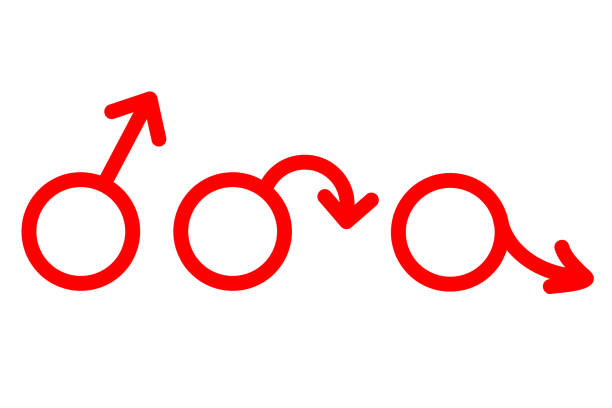Understanding Erectile Dysfunction (ED)
Erectile dysfunction (ED) happens when a man has difficulty getting or keeping an erection that’s firm enough for sex. This condition is more common than many people realize, and it often becomes more frequent with age. According to the Cleveland Clinic, around 52% of men will deal with ED at some point in their lives.
While erectile dysfunction (ED) is often linked to aging, it isn’t just a normal part of getting older. Many health and lifestyle factors—like poor diet, lack of exercise, stress, or certain medical conditions—can play a big role. The good news is that ED is often treatable. In many cases, making healthy changes can help improve or even reverse the condition.
Can Lifestyle Changes Really Reverse ED?
In many cases, yes—lifestyle changes can help reverse erectile dysfunction (ED). ED is often linked to physical problems such as poor blood flow, high blood pressure, diabetes, or being overweight. These issues affect how well blood moves through the body, which is key for getting and keeping an erection. The good news is that many of these health problems can get better with simple but steady changes in daily habits.
Think of it this way: when your body feels better and works better, your sexual health often improves too. Taking care of your overall health—like eating well, staying active, and managing stress—can have a direct effect on how your body performs, including in the bedroom.

What Causes Erectile Dysfunction?
Before we dive into the solutions, let’s take a closer look at the common causes of erectile dysfunction (ED). Understanding what leads to ED is the first step in finding the right way to treat or even reverse it.
- Poor circulation or clogged blood vessels
- Obesity
- Diabetes (especially type 2)
- High blood pressure
- Smoking
- Alcohol or drug abuse
- Stress, anxiety, or depression
- Hormonal imbalances
- Lack of physical activity
Many of these causes are linked to your daily habits, like what you eat, how active you are, and how much you sleep. The good news is that these are things you can change, which means you can take back control of your health and your sex life.
Lifestyle Changes That May Reverse ED
1. Get Moving: Exercise Regularly
Exercise helps improve blood flow, boosts testosterone levels, and lifts your mood. It also supports heart health and reduces stress. All of these benefits play an important role in supporting strong and lasting erections.
Best exercises for ED:
- Aerobic workouts like walking, jogging, or swimming
- Strength training to boost testosterone
- Kegel exercises to strengthen pelvic muscles
A 2018 study in the Sexual Medicine Reviews journal showed that moderate exercise 4 times a week can improve ED symptoms.
Tip: Start with just 30 minutes of walking a day.
2. Lose Extra Weight
Being overweight or obese increases your risk of erectile dysfunction (ED). Extra fat, especially around the belly, can lower your testosterone levels—the hormone that supports sex drive and erections. It can also damage your blood vessels, making it harder for blood to flow properly to the penis.
Losing just 5–10% of your body weight can lead to better sexual function, according to Harvard Health. Even small changes in weight can boost testosterone levels, improve blood flow, and make a big difference in reducing symptoms of erectile dysfunction (ED).
Small steps to start:
- Cut out sugary drinks
- Eat more vegetables and lean proteins
- Practice portion control
3. Eat a Heart-Healthy Diet
What’s good for your heart is also good for your erection. Eating a diet full of fruits, vegetables, whole grains, lean proteins, and healthy fats helps keep your blood vessels open and healthy. Good blood flow is key for strong erections, and a heart-healthy diet supports that flow.
Best foods for ED:
- Leafy greens (spinach, kale)
- Berries
- Nuts and seeds
- Fatty fish (like salmon)
- Olive oil
- Dark chocolate (in moderation)
Avoid too much sugar, fried foods, and processed snacks.
4. Quit Smoking
Smoking harms your blood vessels, which makes it harder for blood to reach the penis and support an erection. Over time, this damage can lead to erectile dysfunction (ED). According to the CDC, men who smoke are much more likely to have ED than men who don’t smoke.
The good news? Quitting smoking can help reverse the damage, especially if you stop early. When you quit, your blood vessels start to heal, blood flow improves, and your risk of erectile dysfunction (ED) goes down over time.
Support options:
- Nicotine patches or gum
- Counseling or support groups
- Quit-smoking apps

5. Cut Back on Alcohol
Too much alcohol can harm your sexual health. It can dull your nerves, lower your testosterone levels, and reduce blood flow—all of which can lead to erectile dysfunction (ED). While moderate drinking is fine for many men, heavy or frequent drinking is a known risk factor for ED and other health problems.
Stick to:
- No more than 2 drinks a day for men
- Or even better, cut back to weekends only
6. Lower Stress and Anxiety
Stress and erectile dysfunction (ED) often go hand in hand. When you’re stressed, your body releases hormones like cortisol that tighten your blood vessels. This makes it harder for blood to flow properly and harder for you to relax and focus on intimacy.
Try this to reduce stress:
- Deep breathing
- Meditation or mindfulness
- Talking with a therapist
- Regular sleep and downtime
Mental health is just as important as physical health when it comes to erections.
7. Get Better Sleep
Poor sleep can hurt your sexual health in many ways. It affects your mood, hormone balance, and energy levels—all of which are important for a healthy sex life. Men who don’t get enough sleep often have lower testosterone levels, which can increase the risk of erectile dysfunction (ED).
Tips for better sleep:
- Go to bed and wake up at the same time daily
- Avoid screens 1 hour before bed
- Cut off caffeine in the afternoon
- Create a calm bedtime routine
Aiming for 7–9 hours of sleep per night can make a big difference.
8. Check Your Medications
Some medications can cause erectile dysfunction (ED) as a side effect. These include antidepressants, blood pressure medicines, and even common antihistamines. If you notice ED after starting a new medication, talk to your doctor about other options.
Don’t stop taking medications on your own, even if you think they’re causing erectile dysfunction (ED). Always talk to your doctor first. They may suggest a different dose, switch you to another medicine, or offer other solutions that can help without risking your health.
9. Boost Testosterone Naturally
Testosterone plays a key role in sexual desire and performance. When testosterone levels are low, it can lead to erectile dysfunction (ED) and reduced interest in sex. Your lifestyle—like how you eat, sleep, exercise, and manage stress—can have a big impact on your hormone balance.
How to boost it:
- Exercise regularly
- Get enough sleep
- Eat healthy fats and protein
- Avoid chronic stress
- Limit alcohol
If levels stay low, talk to a doctor about testing and treatment.
When to See a Doctor
If lifestyle changes aren’t helping, or if ED comes on suddenly, it’s time to see a doctor. ED can sometimes signal a deeper health problem like:
- Heart disease
- Diabetes
- Hormone disorders
A doctor can help find the cause and guide you toward the right treatment. You don’t have to figure it out alone.
Do Natural Supplements Work?
Some herbs and supplements are said to help with erectile dysfunction (ED). These natural options may support blood flow, hormone levels, or overall sexual health. Common ones include:
- L-arginine
- Panax ginseng
- Yohimbe
- Maca root
But be careful. Not all are proven or safe. Some can interact with other medications or cause side effects. Always check with your doctor first.
For reliable info, visit NIH’s Office of Dietary Supplements.
The Link Between ED and Heart Health
ED is often one of the first signs of heart disease. That’s because the blood vessels in the penis are smaller and more sensitive. If they’re not working well, it may mean problems are starting elsewhere in the body too.
That’s why taking ED seriously—and working on your overall health—can literally save your life.

Can Lifestyle Changes Really Reverse ED? The Final Answer
Yes—in many cases, they can. While not every man will see complete reversal, improving your lifestyle can make a big impact. You may not need pills or surgery. A healthier life often leads to a healthier sex life.
Key Takeaways
- Erectile dysfunction is often caused by lifestyle-related issues
- Regular exercise, better food, and less stress can improve symptoms
- Losing weight and quitting smoking have big benefits
- ED can be an early sign of heart disease—don’t ignore it
- Talk to your doctor if changes aren’t enough
Ready to Take the First Step?
You don’t have to tackle everything at once. Choose one small habit to start today. Walk after dinner. Eat more vegetables. Go to bed 30 minutes earlier.
Improving your health helps more than just your sex life—it boosts your confidence, energy, and happiness.
Have questions or want to share your journey? Drop a comment below—we’d love to hear from you!

